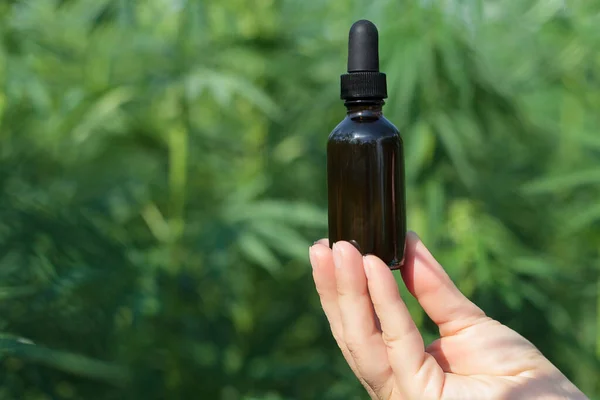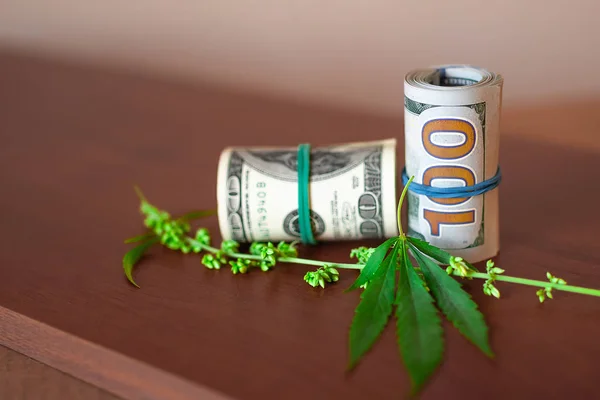The CBD oil industry is growing rapidly, and with that comes misinformation. It’s vital to do your research before buying CBD oil to ensure you’re getting a safe, effective and legal product. One question that’s often asked is whether the color of CBD oil makes a difference.
The short answer is that it doesn’t. The color of the oil is determined by the extraction method used and the type of hemp plant the CBD was extracted from.
The color can be an indication of the quality of the oil. In general, darker-colored oils are of lower quality than lighter-colored oils. The darker colors are usually the result of using harsh chemicals in the extraction process.
The different colors of CBD oil
While the color of CBD oil doesn’t matter, it’s vital to pay attention to the color when trying to determine the quality of the oil.
Different CBD oils are available on the market, and they come in various colors. The first type of CBD oil color is called clear or transparent.
Clear or transparent CBD oil is just like regular oil that you would use for cooking. The main difference is that it has been specially formulated to act as a carrier for other ingredients, such as CBD or THC.
Black CBD oil and dark green CBD oil are more popular choices among consumers because they can hide any impurities present in the oil while still providing the benefits of CBD.
Another type of CBD oil color is called cloudy or opaque. Cloudy or opaque CBD oil is not clear at all, and it can give off an oily or muddy appearance if it’s not properly refined. If you see this type of coloring, you may want to look for another option.
Does color matter?
A CBD oil color can be a warning sign of low quality. If your CBD oil is brown, it’s likely that the product has been exposed to heat or light and is degrading. It can happen when a product is stored improperly or when the ingredients degrade during processing. When you see a brown color in the oil, it’s best to be cautious.
If you are purchasing CBD oil online, ensure that the lab testing results are available before you buy. Most manufacturers don’t test their products until after they have been on the market for some time.
Remember that many different types of CBD oil products are on the market, and distinctions among them can be hard to make without laboratory testing.
If you are unsure about the quality of a CBD oil product, take a few drops under your tongue and hold them in your mouth for 60 seconds before swallowing. It will allow you to get a dose of CBD in your system to determine whether it is an effective product for you or not.
Benefits of CBD Oil

CBD oil has countless benefits, including treating many medical conditions. It can help:
- Reduce pain and inflammation;
- Fight cancer;
- Improve mental health.
As a result, millions worldwide are starting to use CBD oil for therapeutic reasons. Some doctors believe that it could be a valuable alternative to traditional medications. There are many ways to use CBD oil. Most people start by using it for pain relief. CBD oil can also treat other conditions like anxiety and depression.
Children are even using it as an alternative treatment for ADHD. The main goal is to start slow and gradually build up your tolerance over time. Before using it, it’s vital to understand how CBD oil works and what to expect.
Cannabidiol is found in the hemp plant. Both hemp and marijuana come from the same plant family. Hemp does not contain THC, the psychoactive compound in marijuana that makes you feel high or stoned.
To use, CBD oil must first be extracted from the plant material. It can be done through several methods including heating, filtering and tincturing. Once purified, CBD oil can be used in a variety of ways. It can be consumed directly as a food supplement or added to edibles to create oils and tinctures.
Properties of CBD oil
Color
The color of hemp-derived CBD oils ranges from clear, golden yellow, greenish-yellow or dark brown. All CBD products have unique characteristics depending on the amount of CBD.
In terms of its effects, CBD is generally considered to be safe and non-toxic; if consumed in high doses, it may cause some negative side effects.
Taste/smell
The flavor of CBD oil varies depending on what type of strain is being used. Since CBD is extracted from the flowers of the hemp plant, it tends to have a sweeter taste than other forms of cannabis products. On the contrary, hemp grown for industrial purposes tends to have a stronger odor.
Price

In general, higher-priced CBD products tend to be of higher quality and purity. The price of CBD oil does not necessarily reflect its quality.
Most reputable companies produce CBD products at a low cost. The best way to know how much money you will spend on the product is to read the label carefully.
Other considerations when buying CBD oil
It’s vital to note that all CBD oils are not created equal. As the name suggests, cannabidiol acid is a non-aromatic cannabidiolic acid found in the lipids of hemp seed. The quality of CBD oil depends on the purity of the cannabidiol and the extraction method used.
The purity refers to how much CBD is left in the final product, and the extraction method is how much is removed from the raw hemp plant and what is left behind. Essentially, if too much CBD is extracted, the product can be less effective and dangerous.
CBD oils are also not regulated, so their composition and potency can vary greatly from bottle to bottle. Some companies sell low-quality CBD oils and claim their products are high quality, which leads to faulty consumption practices.
There’s hope for better practices as more states legalize medical marijuana and businesses start focusing on selling quality products rather than avoiding legal issues.
If you have epilepsy or other seizure disorders, seek out lab results from your local hospital/drugstore/pharmacy before buying any type of hemp or CBD product(s).
Suppose these institutions don’t have a lab testing program in place for cannabidiol products (like they do for marijuana). In that case, there’s no telling what substances might make it through unscathed and onto the dispensary shelves-making your condition worse instead of better.
Consider your tolerance level for THC. While most CBD oils contain trace amounts of THC (the psychoactive compound in cannabis), some concentrated varieties can contain up to 20% THC content.
Someone who uses cannabis regularly or has a medical condition that requires them to consume high levels of THC may find that dose level too large and potentially harmful.
Conclusion
Considering these factors will help you make an informed decision when buying CBD oil to reap all the benefits cannabidiol offers without compromising your health. Anyone can benefit from its natural cannabinoid. People with specific conditions should consult a doctor before trying any new supplement, so they know what dosage level is right for them.

 Massage with CBD oil and with classic oils: What is the difference
Massage with CBD oil and with classic oils: What is the difference
Leave a Reply